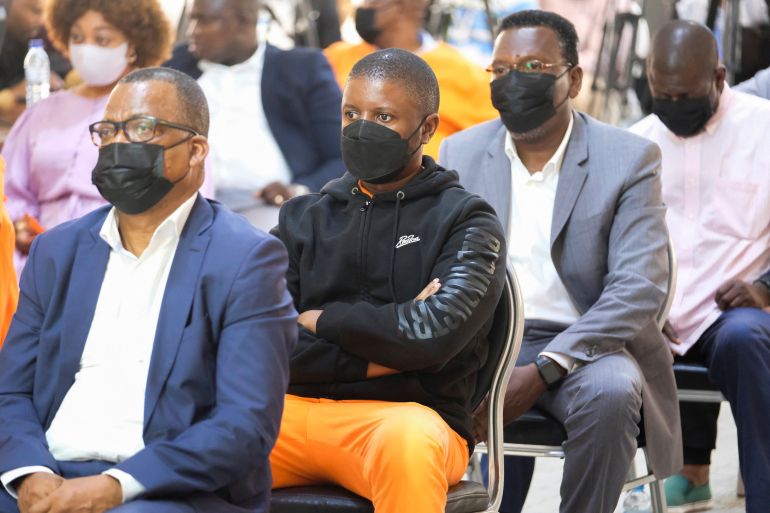Mozambique ex-president’s son, 10 others jailed over corruption
Nineteen people, including state security officials, went on trial for a ‘hidden debt’ scandal that crashed the country’s economy.

A court in Mozambique has sentenced the son of a former president, two ex-spy bosses, and eight others to years in prison for their part in a corruption scandal in which the government sought to conceal huge debts, triggering financial havoc.
The 11 were found guilty and sentenced on Wednesday on charges related to a $2bn “hidden debt” scandal which saw hundreds of millions of dollars in government-backed loans disappear and crashed the southern African nation’s economy.
Keep reading
list of 4 itemsSlapped: Speaking Up In Thailand
Vietnam tycoon Truong My Lan sentenced to death in $12.5bn fraud case
Mexico cuts ties with Ecuador after police raid embassy
Nineteen individuals, including state security officials, were put on trial on charges such as money laundering, bribery and blackmail; the remaining eight were acquitted by the court in Maputo.
Armando Ndambi Guebuza, son of former president Armando Guebuza, was sentenced to 12 years in prison, while others who were convicted were handed sentences of between 10 and 12 years.
“Armando Ndambi Guebuza showed no remorse for committing the crime and he maintains that he has been targeted for political reasons,” Judge Efigenio Baptista of the Maputo City Court said.
“Ndambi still does not reckon that he wrongfully benefitted from $33m that the Mozambican people badly need.”
Two top intelligence service officials, General Director Gregorio Leao and head of the economic unit, Antonio Carlos do Rosario, were also each sentenced to 12 years in prison.
Leao and do Rosario were found guilty of embezzlement and abuse of power, while Ndambi Guebuza was convicted for embezzlement, money laundering and criminal association, among other charges.
The judge said those convicted had by their actions helped impoverish Mozambique’s people.
“The defendants tarnished the good image of the country abroad and in the international markets, with enduring and hard-to-repair effects,” he said.
The scandal arose after state-owned companies in the impoverished country illicitly borrowed $2bn in 2013 and 2014 from international banks to buy a tuna-fishing fleet and surveillance vessels. The government masked the loans from parliament and the public.
When the “hidden debt” finally surfaced in 2016, the International Monetary Fund (IMF) and other donors cut off financial support, triggering a sovereign debt default and currency collapse.
An independent audit found $500m of the loans had been diverted. The money remains unaccounted for.
Former President Guebuza, who was in office when the loans were contracted, testified at the trial, but was not seen in court on Wednesday.
Wearing a black sweater over an orange prisoner jumpsuit, his son stood up as the judge handed out the verdict.
During the proceedings, Baptista said Ndambi Guebuza acted deliberately “to exert influence on his father” and get the government to approve the purchase of the vessels.
He took a $33m bribe that went to satisfy his “desire for luxury” the judge said, listing some of the assets the former president’s son acquired with the money. They included luxury cars and a 10-million-rand ($590,000) mansion in neighbouring South Africa.
Besides being sentenced to jail, the younger Guebuza was ordered to pay a fine of 162,000 meticais ($2,500).
The trial started in August last year and ran until March. It was broadcast live on local TV and radio stations.
Dozens of people, including anti-corruption activists and civil campaigners, sat in the courtroom, a makeshift facility set up in a white marquee to accommodate defendants, their lawyers and other parties.
The debt scandal exposed corruption on a global scale and sparked legal cases across three continents. Swiss bank Credit Suisse was fined $475m last year over its part in issuing the loans.
Former Finance Minister Manuel Chang – who signed off the loans – has been held in South Africa since 2018, pending extradition to the United States for allegedly using the US financial system to carry out the fraudulent scheme.